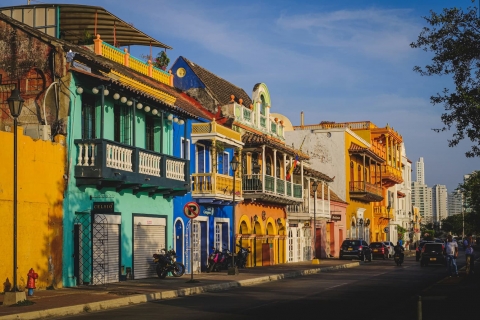Nova Iguaçu Weather and Climate: A Comprehensive Guide
The weather in Nova Iguaçu is characterized by a steady average temperature throughout the year.
It also has a notably wet climate with much precipitation.
Now, let’s explore all the climate details to give you a full picture.
Average maximum day and minimum night temperature
The climate in Nova Iguaçu remains fairly constant, offering comfortable temperatures throughout the year. Average maximum daytime temperatures range from a very warm 33°C in February, the warmest time of the year, to a comfortable 27°C during cooler months like July.
At night, temperatures typically drop to an average of around 16°C during these months. Check out our detailed temperature page for more information.Temperature ranges by month
Precipitation and rainy days
Nova Iguaçu is known for its substantial rainfall, with annual precipitation reaching 1479 mm. Significant seasonal changes in precipitation occur throughout the year. During the wetter season, January receives heavy rainfall, averaging 244 mm of precipitation, recorded across 20 rainy days. In contrast, the drier season, August brings less rainfall, with 38 mm over 9 rainy days. For more details, please visit our Nova Iguaçu Precipitation page.The mean monthly precipitation over the year, including rain, hail and snow
Sunshine over the year
While the amount of sunshine in Nova Iguaçu varies throughout the year, all seasons offer their own charm. Enjoy up to 7.1 hours of daily sun in January, and experience slightly darker atmosphere in September, with about 4.8 hours of daily sunlight. Visit our detailed sunshine hours page for more information.Monthly hours of sunshine
Daily hours of sunshine
Average humidity
The relative humidity is high throughout the year in Nova Iguaçu.
The city experiences its highest humidity in March, reaching 80%. In July, the humidity drops to its lowest level at 77%. What does this mean? Read our detailed page on humidity levels for further details.
Relative humidity over the year
partly cloudy and thunder partly cloudy and thunder broken clouds and thunderForecast for Nova Iguaçu
Select a Month of Interest
Check the weather conditions for any month in Nova Iguaçu.
The best time of year to visit Nova Iguaçu in Brazil
Nova Iguaçu has high temperatures year round ranging between 26°C and 32°C.The best time to visit is during the drier months: June, July and August.
Other facts from our historical weather data:
Most rainfall (rainy season) is seen in January, February, March, November and December.
January tops the wettest month list with 244 mm of rainfall.
August is the driest month with 38 mm of precipitation.
January is the sunniest month with an average of 212 hours of sunshine.
No idea where to travel to this year? We have a tool that recommends destinations based on your ideal conditions. Find out where to go with our weather planner.




